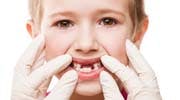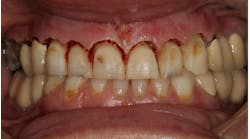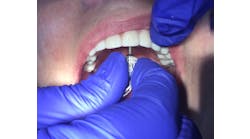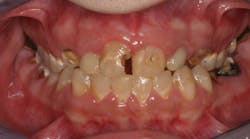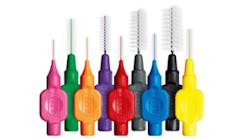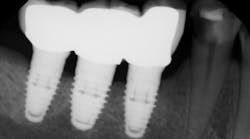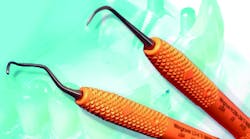NYU College of Dentistry partners with Columbia University on Center for Medicare and Medicaid Innovation Grant to test a non-surgical disease management model for early childhood caries
New York University College of Dentistry (NYUCD) has received a subaward in the amount of $967,235, from the Center for Medicare and Medicaid Innovation, to coordinate a consortium of pediatric dental residency programs that, together, will provide “dental homes” for children enrolled in a program to test a non-surgical disease management model for early childhood caries. A “dental home” refers to the ongoing relationship between a licensed dentist and a patient, inclusive of all aspects of oral health care delivered in a comprehensive, continuously accessible, coordinated, and family-centered way.
The model uses family-level, peer-counseled, and technology-assisted behavioral risk-reduction strategies to reduce new caries; progression of existing caries; caries associated pain; and, ultimately, the number of children treated in the operating room for highly invasive and costly treatments.
The nearly $4 million grant was awarded to Columbia University College of Dental Medicine, where the principal investigator is Dr. Burton Edelstein, professor of dentistry and health policy. The NYUCD portion of the grant is led by Dr. Amr Moursi, associate professor and chair of the Department of Pediatric Dentistry.
“The project aims to divert children with early- and advanced-stage early childhood caries (ECC) from high-cost surgical treatment to low-cost, non-surgical disease management,” said Dr. Moursi. “Together, parents and community health workers will use MySmileBuddy (MSB), a mobile tablet-based health technology, to plan, implement, and monitor positive oral health behaviors, including dietary control and use of fluorides, which can slow or arrest ECC’s progression,” he added.
MySmileBuddy was designed with a strong theoretical basis, which applies key principles of risk-based triage, early intervention, individualization, and motivational interviewing. MSB is designed to enhance parental knowledge, skills, and self-efficacy to reduce caries-related risk factors, proportionate to a child’s early childhood caries experience. Through home visitations, community health workers will meet in person with parents of children with early-stage early childhood caries bimonthly for one year and with parents of children with advanced-stage ECC weekly for the first four weeks, then bimonthly for the remainder of the year. In addition, community health workers will provide tailored telephone intervention for in-person meetings to offer additional support and reinforce behavior change goals. Community health workers will also assist parents in accessing a dental home where their children will receive timely, comprehensive oral health care from affiliated pediatric dental providers throughout New York City.
“This project has great potential to advance preventive and minimally invasive interventions that are consistent with American Academy of Pediatric Dentistry guidelines,” said Dr. Moursi.
Related Articles:
American Dental Association statement: CDC data shows early childhood caries trending down
Definitive treatment for baby bottle syndrome and early childhood caries, part I - Strip crown success
